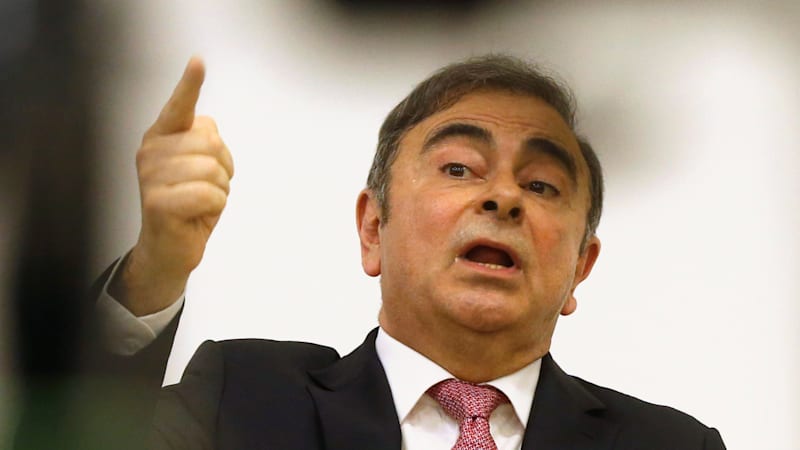Japan will veto Lebanon’s $10 billion bailout request if decision-makers in the Middle Eastern nation do not deport former Renault-Nissan boss Carlos Ghosn, in accordance to attorneys. He famously fled Japan, the place he was below home arrest, and landed in Lebanon, the place he was raised, by boarding a non-public jet in a field in 2019.

Ghosn’s crafty plan — which he orchestrated with the assistance of a former Green Beret arrested in 2020 — was worthy of a James Bond film, nevertheless it did not take Lebanon’s monetary difficulties into consideration. Inflation is rising, unemployment is rising, meals is changing into more and more costly and the nation’s public debt hovers in the neighborhood of $90 billion. Banks are additionally operating out of {dollars}, which the enterprise sector pressingly wants to pay for imported items. Government officers started negotiating the phrases of a $10 billion bailout with the International Monetary Fund (IMF) in May 2020, and Ghosn may unexpectedly discover himself in the center of the talks.
Japan joined the IMF in 1952, and it has change into one of many fund’s massive contributors. Its authorities has tirelessly tried to persuade Lebanese officers to ship Ghosn again to Tokyo so he can go on trial for monetary misconduct, however its requests have been shot down or ignored. Although the 2 nations agreed to focus on the phrases of a possible extradition treaty earlier in 2020, nothing has been signed but and Lebanon is below no authorized obligation to ship Ghosn again. The looming bailout vote will give Japanese officers a golden alternative to pry the chief out of Lebanon’s arms.
“For Japan to agree on [the bailout], they need the Lebanese authorities to extradite Ghosn. Otherwise, they will not present Lebanon with monetary help,” warned Sakher El Hachem, Nissan’s authorized consultant in Lebanon, in an interview with Arab News. “If Japan vetoes Lebanon, the IMF will not give Lebanon cash besides after deporting Ghosn,” he added. Ghosn’s authorized workforce hasn’t commented on the matter, and neither has Japan.
There’s no phrase but on when IMF members will collect to determine whether or not to funnel $10 billion into the Lebanese financial system. Writing on Twitter, spokesman Gerry Rice introduced talks between the group and authorities “so far have been constructive.” He added his workforce is making an attempt to get a greater understanding of how Lebanese decision-makers plan to use the cash and finish the recession, and famous the financial plan proposed is an effective start line. He made no point out of Renault-Nissan’s former prime government, who stays free in spite of a world arrest discover issued by Interpol in January 2020, 4 days after he escaped to Beirut through Istanbul.
Ghosn is not the one hurdle Lebanese officers want to clear earlier than they’re eligible to obtain a bailout. America is a serious IMF contributor, and it may ask Lebanon to shut its border with Syria earlier than it receives a dime. Lebanon’s failed electrical energy sector will definitely elevate eyebrows, too. Residents run non-public mills to keep away from common blackouts, and the state-run utility firm (Électricité du Liban) racks up an annual deficit typically measured in billions of {dollars}. The main reforms requested in 2018, when worldwide donors gathered on the CEDRE convention in Paris pledged to inject $11 billion into the Lebanese financial system, have not been enacted but.
